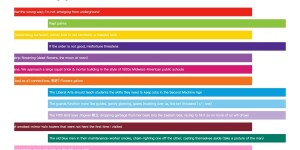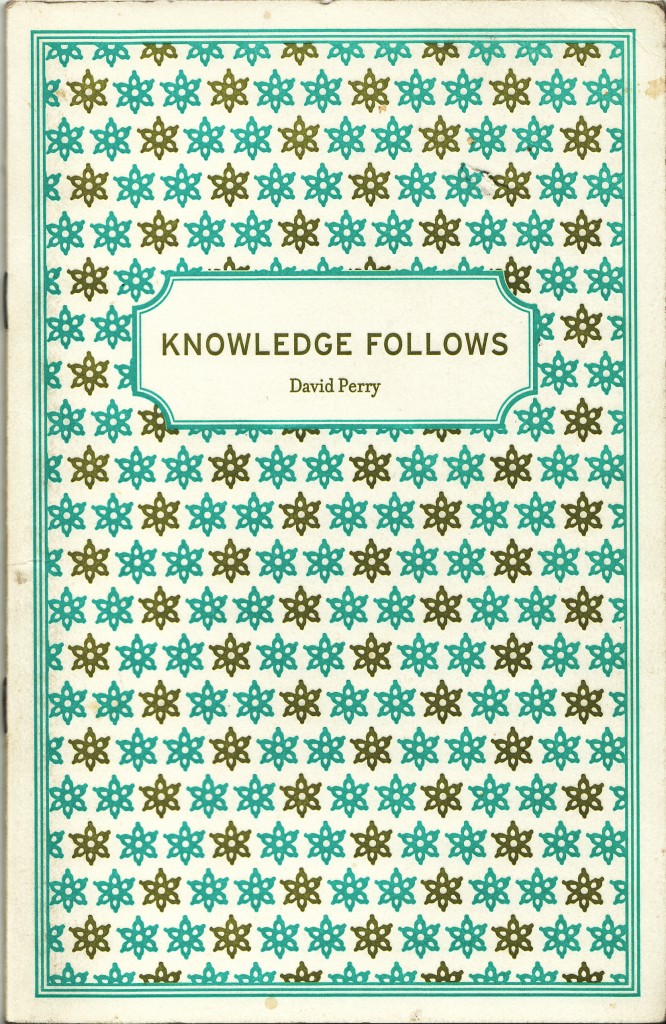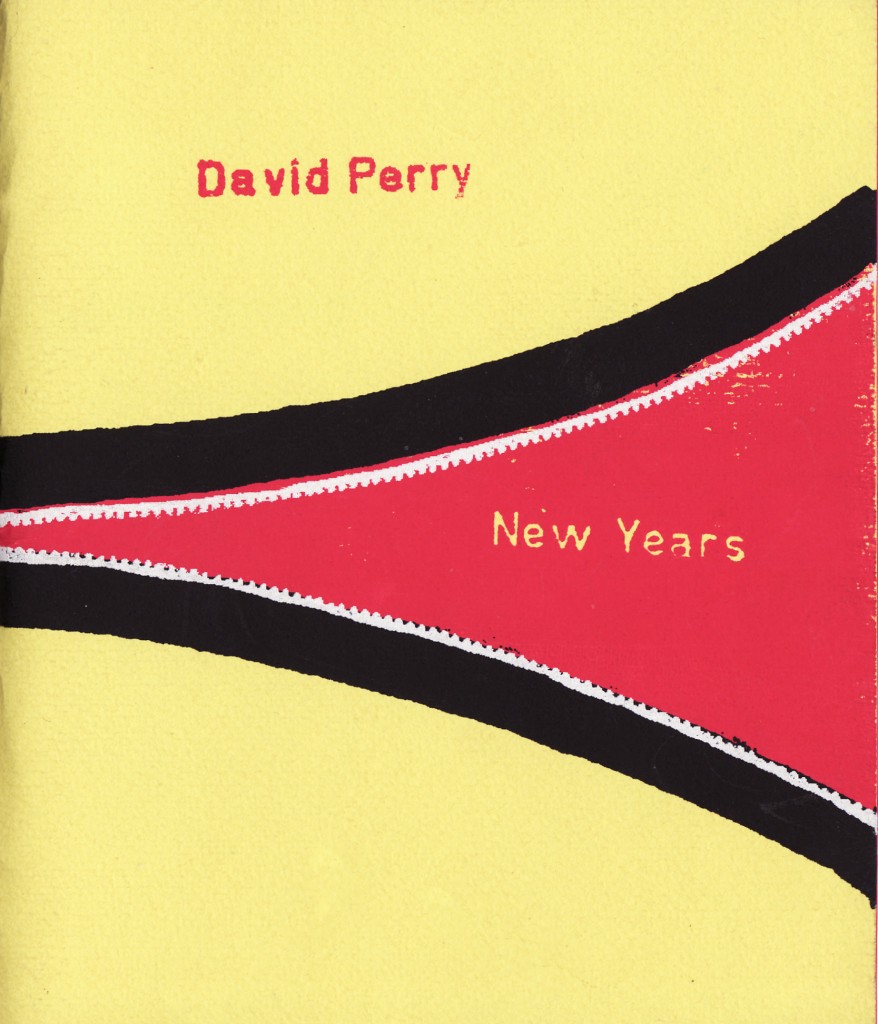DIGITAL POETRY & POETICS
 An ongoing digital poem, n Lines & Changing is based on randomized algorithmic Shanghai walks and draws inspiration from, among other things, Raymond Queneau’s Cent mille milliards de poèmes, the Shanghai Metro, the 易经 (I Ching or Book of Changes), and the vexed & vexing question of the Anthropocene.
An ongoing digital poem, n Lines & Changing is based on randomized algorithmic Shanghai walks and draws inspiration from, among other things, Raymond Queneau’s Cent mille milliards de poèmes, the Shanghai Metro, the 易经 (I Ching or Book of Changes), and the vexed & vexing question of the Anthropocene.
Funded in part by a NYU Digital Humanities Seed Grant.
BOOKS & CHAPBOOKS
Expat Taxes
Expat Taxes (Seaweed Salad Editions / French [Concession] Press)
Read poems from Expat Taxes: The Brooklyn Rail | Across the Margin | Sprung Formal | Alluvium
Purchase directly from from Small Press Distribution
On Expat Taxes:
David Perry’s poems are charged, feverish meditations written in the wave/particle light of our current digitized reality. Memory and language, both personal and collective, create the selves we’re constantly calling into question, submerged as we are in the confusion that ensues when we try to figure it all out. But don’t worry, Perry gifts us these essential instructions: “Stop. Sit down. Relax. Think. Witness/ unlimited growth in all directions” so that we remember “All possibility to the point of extinction/ is consciousness…”
—Richard Roundy
Range Finder

Range Finder (Adventures in Poetry/Zephyr Press)
Read a poem from Range Finder: Urban Pod on a Hill
Purchase directly from Zephyr Press
On Range Finder:
David Perry could have impishly called this first collection Some Final Advice, as we greet him at the beginning of a great career—advice for self and others as his phenomenal investigations unfurl with a physical dailiness that haunts sensation, and flip the lids again and again. Words, as he says, “want us to do things / That we can’t do with them”—or, in his hands, without them, either.
—Alan Bernheimer
Perry’s bon mots are sometimes designed to expose human shortcomings, but more often they share the mutual foibles and failures that make people and the world loveable even when part of us wishes they weren’t … there are distractions and entertainments, dalliances and affairs, connections and misunderstandings. Range Finder is not only well worth reading, but also worth taking around. Take it with you lightly, but don’t take it lightly. Read it like you’re having a conversation, one which you greatly enjoy but ends up teaching you more than you first realize.
—Mark Wallace, Poetry Project Newsletter
• Here’s a poet who knows his way around a syllable. • “The elegance of Schuyler and the dark suburban vision of Ceravolo”? • Nice work, if you get it. • Actual stanzas. Artful enjambment. Anthill Earth. • Will this book change your poetry life? • “That’s for time to know and space to find out” • Fast, but not loose. Formed, but not formal. Mean, but not evil. • I admit to at times being frightened by this verse. That’s one measure. However, the poems themselves are not afraid. The poet damned well should be. • “Thunk,” good title. • The (comedy of the) bleakness here is your birthright, I’m pretty sure.
—Kevin Davies
“I have nowhere to go / that isn’t automatically written language.” Is there such a thing as surrealist meditation? Non-narrative autobiography? In David Perry’s elusive yet eminently chaseable poems, “hallucinations prowl the baseboards and molding, never to see in themselves any sense except subliminally.” Under shifting, disjunctive surfaces, Perry examines self, history and language, reminding us of the insupportability of each. He talks to obelisks, untethers aspirations and assesses our “awful haircuts,” all with a charming nod.
—Adventures in Poetry/Zephyr Press
Knowledge Follows
 Knowledge Follows (Insurance Editions, 2004)
Knowledge Follows (Insurance Editions, 2004)
Read an excerpt published on the Subtext site.
Read an excerpt published in The Baffler.
On Knowledge Follows:
Part peripatetic, subtle, yet quite cerebral, complexity, part humorous, and anecdote-laden travelogue, part meditation on place, simultaneously of the text and the empirical world, David Perry’s Knowledge Follows is an all together dynamic assemblage of precisely deployed, lineated stanzas, interspersed with bits of narrative prose. Loosely documenting a trip to Chiapas (in Mexico), though in the more Objectivist sense of specificity of focus, Perry’s dexterous and attentive writing renders time itself an almost palpable entity….
—Noah Eli Gordon in Jacket
Perry instantly lets the reader know that he’s in total control of his medium. The directness of address & level of detail invokes the genre of a top-notch page turner, even if the details are not what one might anticipate. Or, more accurately, precisely because the details were not what one might anticipate we are driven that much deeper into the text itself. By the third line, I was completely hooked.
New Years
 New Years (Braincase Books, 2003)
New Years (Braincase Books, 2003)
Read excerpts at the DCPoety anthology site and at Subtext.
Hear a reading from PennSound.
On New Years:
David Perry’s chapbook New Years (sections of which first appeared in The Poker) is another work of non-narrative prose poetry that impresses with its carefully-honed sentence rhythms and its whimsical sense of careening through quotidian experience with an eye peeled for the absurd and the adventurous:
We didn’t know enough to keep the new kid away and he kept coming back…. He turned out to be one of them. The fire was set to smoke us out, but we were unable to jump into the stream and evade the hounds and the flames. But we couldn’t shake the new kid. How I ended up alone in a Kum & Go buying a Slurpee at 4 AM remains a mystery for the ages. But it worked, and I woke without physical harm, though I experienced the usual guilt for having lost you in the confusion. It’s a gift, if I unwrap it right, that redeems lost time, though not without pain.
The Proustian trope of the redemption of lost time also supplies Lyn Hejinian with her closing lines in The Fatalist: “Is memory a halt? Is the dream / not an orifice belonging to sleep? The sun that lights the obvious / oblivion cannot stop it. That’s what fate is: whatever’s happened / —time regained.”)
—Steve Evans in The Poker
…in this little, limited edition – Noah Eli Gordon’s Braincase Press has printed just 100 copies – Perry kicks it up a notch, maybe two. It’s like (forgive the sports analogy) when a power pitcher suddenly gets pinpoint control – they go from being a good middle-of-the-rotation starter into becoming Sandy Koufax or Randy Johnson. This book is that good.
Interestingly enough, one of the undecidable questions for me in reading this text, at least in its early pages, is whether these brilliant prose constructions are all one work or a series of independent pieces. You might imagine that this would be a sign of weakness but it’s just the opposite – each paragraph, set off by space & (with a significant exception) starting with a series of words all in small caps is so thorough in its realization that they can function either way. Here is one section, a little more than midway through the book:
THE FORMAL TAILORING OF LINES forces a posture I can’t hold and I collapse in front of the mirror and everyone. It’s for a funeral, and while I make my split-second dream passage from boy to man and back again, the great swan boat in which my grandfather lies recedes into the distance, obscured by reeds. I’m only four, although six feet already, and freshly anxious that my new teacher might expect me to know multiplication. A pair of doves have made their nest on the fire escape, and I’m as happy as can be.
There is a crispness to every sentence here that cannot be faked. Do all four sentences refer to a single dream, or four separate situations? That this question could be answered either way – and something very much like it is true of almost all the paragraphs in this book – is an index of just how exact Perry’s sense of balance proves.
POETRY ONLINE
Three poems in English + translations into Chinese by Sun Dong (Poetry Magazine 《诗刊》)
Three poems (Alluvium)
Four poems (The Brooklyn Rail)
Seven poems (Across the Margin)
Columbo in San Cristóbal (The Baffler)
Urban Pod on a Hill (from Range Finder)
Three poems + one with Sawako Nakayasu (Sprung Formal)
POETRY IN TRANSLATION
Seven poems by Sun Dong (in Paper Republic, translated from Chinese by David Perry)
THE APE (Chinese translation by Hai An) | 类人猿 ( 海岸译 )
Six poems by Bert Papenfuß (translated from German by David Perry)
The China Eastern Railway: A nine-poem series by Han Bo (translated from Chinese by David Perry)
ARTICLES
“She Lives in the Temporary”: Bodies without Organs, “Engendered Opposites,” and Dao-Time in Han Bo’s China Eastern Railway Cycle. (philoSOPHIA: A Journal of transContinental Feminism. SUNY Press, 2022)
Slow or Nothing: Walking Shanghai on the verge of its lockdown. National Geographic: Out of Eden Walk, 2022. (Features excerpts of student work written by NYU Shanghai freshmen).
Meditations in an Emergency: The Cosmopolitan, the Quotidian, and the Anthropocene Turn in Sun Dong’s 2020 Pandemic Poetry (Paper Republic, 2020)
“Of Rare Compatibility”: Jen Bervin’s Silk Poems and Making Kin in the Sericene (JFLC, 2019)
REVIEWS & CATALOGUE COPY
Hurry Home Honey, by Sawako Nakayasu
Collected Poems of Steve Carey
Hammertown, by Peter Culley
Randian 燃点
Tatu Tuominen and Tuoman Laitinen’s “Museum of Oblivion”
“Moon Life Concept Store” Review
Catalogues
“Side Effects and Contraindications” for Monika Lin’s Double Happiness at Toomey-Tourell, San Francisco, 2008.
“News from the Depths” for Monika Lin’s Medusa at Art Labor, Shanghai, 2010.
BLOGGING
